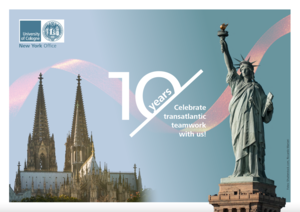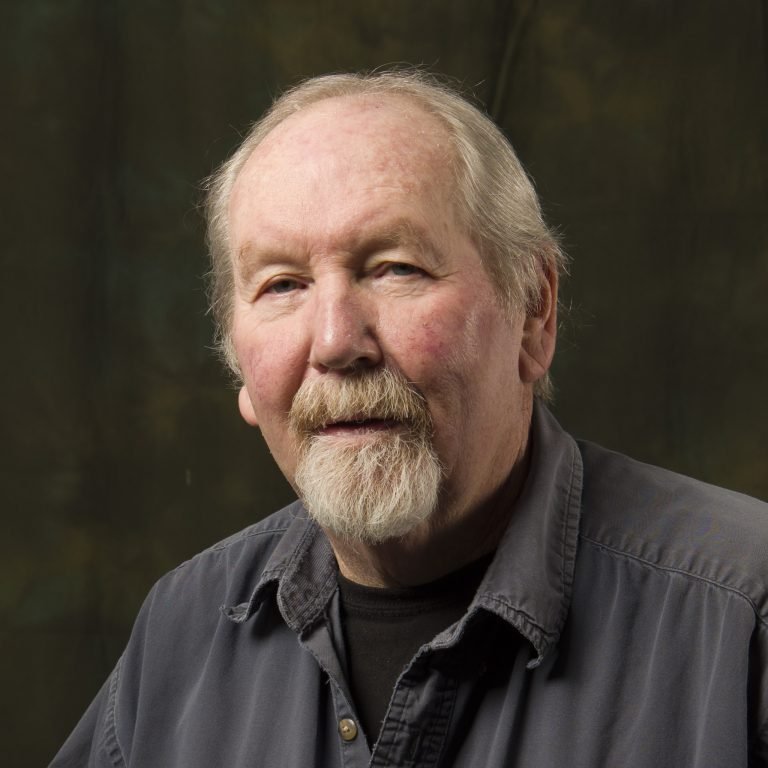
In this Transatlantic Tandem Talk, Prof. Michael Bollig from the Global South Studies Center at the University of Cologne, and Prof. J. Terrence McCabe from the University of Colorado Boulder, discussed the impact of climate change and conservation on rural and tribal communities in Southern and Eastern Africa. These communities face an increased frequency and intensity of disasters like extreme droughts and locust infestations.
The international community’s goal of protecting 30% of the world’s land by 2030 is intended to mitigate the effects of climate change, to protect biodiversity, and to support rural and tribal populations. But will it really?
Speakers discussed: how rural and tribal communities are impacted by large-scale conservation with all its opportunities and challenges; outcomes of the COP26 climate change summit and visions for the United Nations Biodiversity Declaration of Kunming; and the management of natural resources and the transition of pastoral societies to more diverse economies in response to climate change.
With Welcome Remarks by:
Dr. Eva Bosbach, Executive Director, University of Cologne New York Office
Christiane Biehl, Vice-Head International Office, University of Cologne
Prof. Dr.-Ing. René Haak, Minister-Counselor, Head of Section Science and Technology, German Embassy, Washington, D.C.
Moderated by:
Dr. Kathrin DiPaola, Program Manager, DWIH New York
Biographies

Michael Bollig is Professor of Social and Cultural Anthropology at the University of Cologne where his key interests lie in the environmental anthropology of sub-Saharan Africa. He is currently speaker for the Cologne Global South Studies Centre. He has done work in northern Namibia and northern Kenya, working in both cases with nomadic pastoralists on topics ranging from conflict management to adaptation to drought-prone environments.

J. Terrence McCabe has been working among pastoral people in East Africa for over 40 years. His primary research emphasis has been on how people adapt to the arid and semi-arid rangelands of Kenya and Tanzania, and how they cope with changing environmental, social, economic, and political conditions. From 1980 to 1996 he worked among the Turkana of Kenya and from 1989 until the present among the Maasai of northern Tanzania.
The Transatlantic Tandem Talks are presented on the occasion of the 10th anniversary of the North America office of the University of Cologne in New York in cooperation with its partners, the Consulate General of the Federal Republic of Germany New York; the Embassy of the Federal Republic of Germany Washington, D.C.; Deutsches Haus at NYU; DAAD New York; the German Research Foundation (DFG) North America; the German Center for Research and Innovation (DWIH) New York; 1014 Space for Ideas; the Goethe-Institut New York; AmerikaHaus NRW; and Wunderbar Together.









In this Transatlantic Tandem Talk, Prof. Michael Bollig from the Global South Studies Center at the University of Cologne, and Prof. J. Terrence McCabe from the University of Colorado Boulder, discussed the impact of climate change and conservation on rural and tribal communities in Southern and Eastern Africa. These communities face an increased frequency and intensity of disasters like extreme droughts and locust infestations.
The international community’s goal of protecting 30% of the world’s land by 2030 is intended to mitigate the effects of climate change, to protect biodiversity, and to support rural and tribal populations. But will it really?
Speakers discussed: how rural and tribal communities are impacted by large-scale conservation with all its opportunities and challenges; outcomes of the COP26 climate change summit and visions for the United Nations Biodiversity Declaration of Kunming; and the management of natural resources and the transition of pastoral societies to more diverse economies in response to climate change.
With Welcome Remarks by:
Dr. Eva Bosbach, Executive Director, University of Cologne New York Office
Christiane Biehl, Vice-Head International Office, University of Cologne
Prof. Dr.-Ing. René Haak, Minister-Counselor, Head of Section Science and Technology, German Embassy, Washington, D.C.
Moderated by:
Dr. Kathrin DiPaola, Program Manager, DWIH New York
Biographies

Michael Bollig is Professor of Social and Cultural Anthropology at the University of Cologne where his key interests lie in the environmental anthropology of sub-Saharan Africa. He is currently speaker for the Cologne Global South Studies Centre. He has done work in northern Namibia and northern Kenya, working in both cases with nomadic pastoralists on topics ranging from conflict management to adaptation to drought-prone environments.

J. Terrence McCabe has been working among pastoral people in East Africa for over 40 years. His primary research emphasis has been on how people adapt to the arid and semi-arid rangelands of Kenya and Tanzania, and how they cope with changing environmental, social, economic, and political conditions. From 1980 to 1996 he worked among the Turkana of Kenya and from 1989 until the present among the Maasai of northern Tanzania.
The Transatlantic Tandem Talks are presented on the occasion of the 10th anniversary of the North America office of the University of Cologne in New York in cooperation with its partners, the Consulate General of the Federal Republic of Germany New York; the Embassy of the Federal Republic of Germany Washington, D.C.; Deutsches Haus at NYU; DAAD New York; the German Research Foundation (DFG) North America; the German Center for Research and Innovation (DWIH) New York; 1014 Space for Ideas; the Goethe-Institut New York; AmerikaHaus NRW; and Wunderbar Together.









%20Design%20(1).png)
In this Transatlantic Tandem Talk, Prof. Michael Bollig from the Global South Studies Center at the University of Cologne, and Prof. J. Terrence McCabe from the University of Colorado Boulder, discussed the impact of climate change and conservation on rural and tribal communities in Southern and Eastern Africa. These communities face an increased frequency and intensity of disasters like extreme droughts and locust infestations.
The international community’s goal of protecting 30% of the world’s land by 2030 is intended to mitigate the effects of climate change, to protect biodiversity, and to support rural and tribal populations. But will it really?
Speakers discussed: how rural and tribal communities are impacted by large-scale conservation with all its opportunities and challenges; outcomes of the COP26 climate change summit and visions for the United Nations Biodiversity Declaration of Kunming; and the management of natural resources and the transition of pastoral societies to more diverse economies in response to climate change.
With Welcome Remarks by:
Dr. Eva Bosbach, Executive Director, University of Cologne New York Office
Christiane Biehl, Vice-Head International Office, University of Cologne
Prof. Dr.-Ing. René Haak, Minister-Counselor, Head of Section Science and Technology, German Embassy, Washington, D.C.
Moderated by:
Dr. Kathrin DiPaola, Program Manager, DWIH New York
Biographies

Michael Bollig is Professor of Social and Cultural Anthropology at the University of Cologne where his key interests lie in the environmental anthropology of sub-Saharan Africa. He is currently speaker for the Cologne Global South Studies Centre. He has done work in northern Namibia and northern Kenya, working in both cases with nomadic pastoralists on topics ranging from conflict management to adaptation to drought-prone environments.

J. Terrence McCabe has been working among pastoral people in East Africa for over 40 years. His primary research emphasis has been on how people adapt to the arid and semi-arid rangelands of Kenya and Tanzania, and how they cope with changing environmental, social, economic, and political conditions. From 1980 to 1996 he worked among the Turkana of Kenya and from 1989 until the present among the Maasai of northern Tanzania.
The Transatlantic Tandem Talks are presented on the occasion of the 10th anniversary of the North America office of the University of Cologne in New York in cooperation with its partners, the Consulate General of the Federal Republic of Germany New York; the Embassy of the Federal Republic of Germany Washington, D.C.; Deutsches Haus at NYU; DAAD New York; the German Research Foundation (DFG) North America; the German Center for Research and Innovation (DWIH) New York; 1014 Space for Ideas; the Goethe-Institut New York; AmerikaHaus NRW; and Wunderbar Together.









.png)
.jpg)
